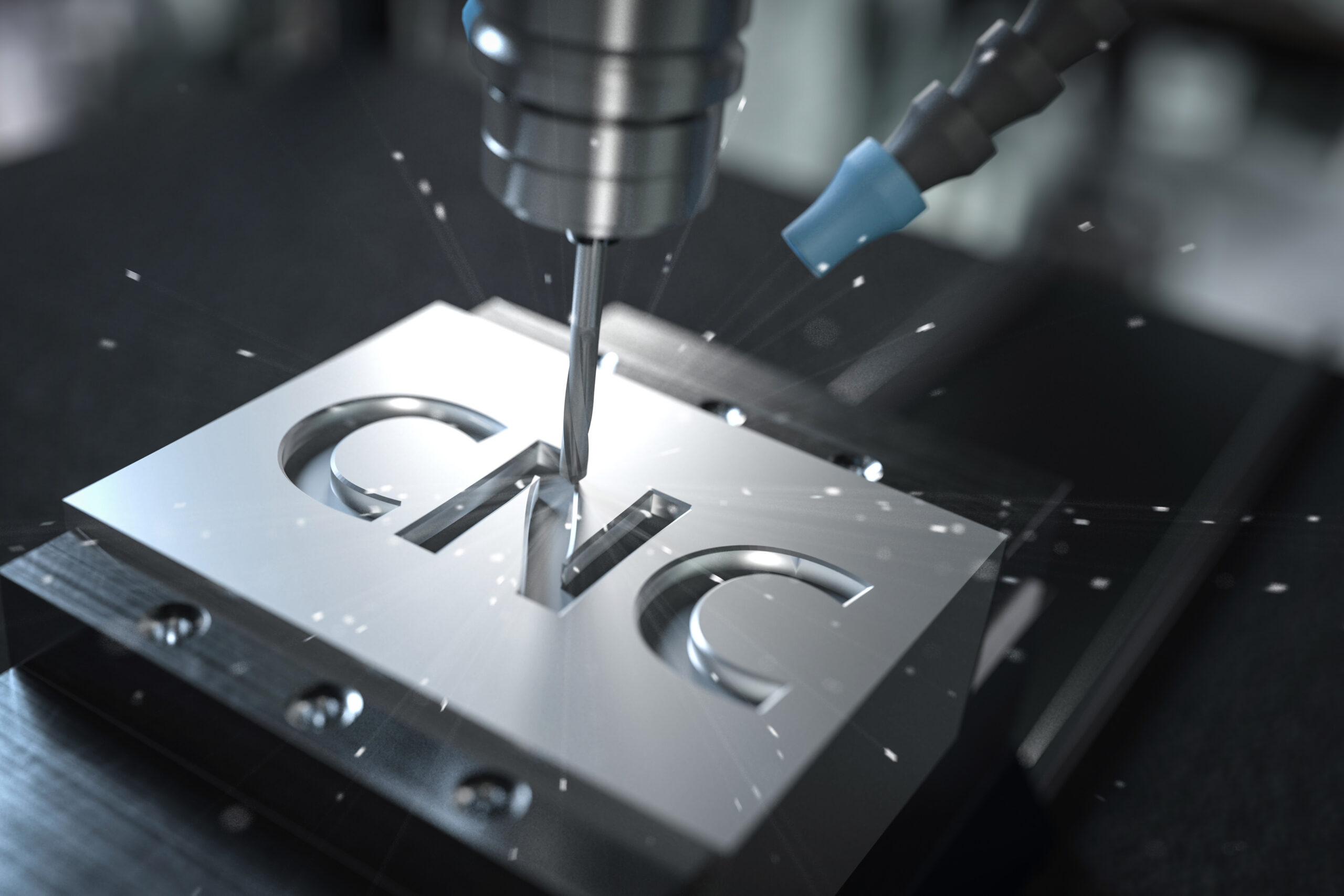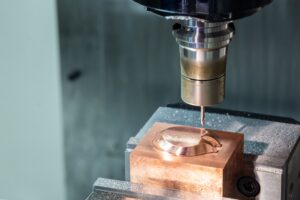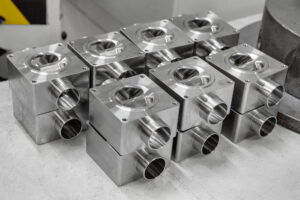Custom Designs
CNC Manufacturing Services
CNC milling and turning for prototypes and mass parts, done in days.
50+ Materials.
100% Quality Guaranteed.
CNC Milling
CNC Milling
CNC Turning
CNC Routing
CNC Routing
Wire EDM Machining
Wire EDM Machining
3D Printing
3D Printing
CNC Laser Cutting
CNC Laser Cutting
CNC Waterjet Cutting
CNC Waterjet Cutting
Surface Treatment
Surface Treatment
Custom CNC Machining Materials
Aluminum
The commonly used aluminum materials currently on the market include Al2024, Al5052, Al6061, Al6063, Al7075 and more
1
Brass
Brass 260 and Brass C360 are the two most commonly used specifications.
2
Stainless Steel
Stainless Steel 303, 304, 316/316L and Stainless Steel 416, 420
3
Copper
EPT Copper C110, Copper 101
4
Plastic
The commonly used plastic materials include ABS, Acetal [Delrin], Acrylic, PEEK, Polycarbonate and more
5
Steel
Steel A36, Steel 1008, Steel 1018, Steel 12L14, Steel 4130, Steel 4140 and more
6
Available Finishes
This finishing option is the fastest available. Parts may have visible tool marks and possibly sharp edges or burrs, removable on request. The surface quality matches a 125 uin Ra finish.
You can use sandblasting to peel paint, smooth out rust, take bumps and mars from stuff, and basically make things clean. Ironically, you can also sandblast things to scuff them up by etching the surface and give something a little bit of ‘tooth’ so that paint will stick better.
Type II anodizing enhances corrosion resistance. It allows parts to be colored in various shades like clear, black, red, and gold, typically for aluminum. Type III provides a thicker, wear-resistant layer as well as the corrosion resistance of Type II.
This process involves spraying powdered paint onto a part, which is then heated in an oven. The result is a tough, wear- and corrosion-resistant coating, more robust than traditional paint methods. A broad range of colors is available for achieving the desired look.
Plating involves coating a conductive surface with a thin metal layer. This method is often used to prevent corrosion, enhance durability, modify surface friction, and boost aesthetics.
Can't find the finish you require? Send us an RFQ, and we'll explore a finishing solution for you.
CNC Machining Tolerances
Maximum Part Size
Milled parts up to 2,032 x 1,219 x 610 mm. Lathe parts up to 1,575 mm length and 813 mm diameter.
General Tolerances
Metal tolerances will be maintained within +/- 0.127 mm following ISO 2768 standards unless stated otherwise. For plastics and composites, the tolerance is +/- 0.254 mm.
Precision Tolerances
Partzcore is capable of manufacturing and inspection to precise tolerances, even achieving +/-0.005 mm tolerances, as per your drawing specifications.
Minimum Part Size
0.50 mm. The extent of this may vary based on the geometry of the part and the selected material.
You’ve got enough worries, let us take care of your parts.
QC will verify that the part material, features, and finish are in accordance with the part requirements specified in the PDF file, CAD file, and/or STEP file.
QC will conduct an examination using precise instruments to document every dimension, attribute, positional measurement, and specification as outlined in our Statistical Sampling Strategy.
QC will conduct a thorough inspection using a Coordinate Measurement Machine (CMM). This will document all dimensions, attributes, locations, and notes in accordance with our Statistical Sampling Plan.
The First Article Inspection aims to confirm that all engineering designs and specifications are fully understood, addressed, verified, and recorded. QC will keep a detailed quality log for customer oversight of responsibilities and planning. This includes conducting regular checks and audits to ensure compliance, assessing the root causes and corrective measures for any discrepancies, and investigating issues.
If your part needs additional inspections, such as Non-Destructive Testing, Serialization, Custom Sampling Plan, or if you want to use your own inspection datasheet, please let us know.
Which industries rely on CNC machining?
CNC machining is important in a lot of different industries because it’s accurate and efficient. Some of the key industries are:
- Aerospace
- Automotive
- Medical
- Electronics
- Industrial Machinery
- Consumer Goods
Medical industry
The medical industry uses CNC milling machines and related technologies to make many different things like replacement joints and devices. They also use this technology to make surgical tools and parts like the critical care ventilator. Some of the other things they make are insulin pumps, various parts for ventilators, medical screws, rods for spines they replace, and bone plates.

CNC Machining Applications

Rapid Tooling
CNC machining is ideal for producing fixtures or molds because it can precisely cut a wide range of strong materials, including aluminum 5052 and stainless steel.

Rapid Prototyping
The inexpensive metal alloys (like 6061 aluminum) and plastics (like acetal or ABS) we offer, combined with the speed of our machinists, make our online CNC machining services perfect for prototyping.

End-Use Production
Performance finishes, tight tolerances down to +/- 0.005mm, and known material selections make CNC machining the best choice for end-use parts.
we can help
Provide Customized Solutions
Contact Partzcore to get a free quote and expert advice on custom metal parts. Our team will provide the right solution for your project.
Tell Us What You Need
Please share your specific needs with us, including drawings, reference images, and your ideas, so we can turn them into reality.
Professional Team
We will analyze your requirements and drawings to provide the optimal solution, along with a detailed quote within 24 hours.
Approve for Mass Production
Upon receiving your approval and deposit, we will proceed with mass production and manage the shipping process.



